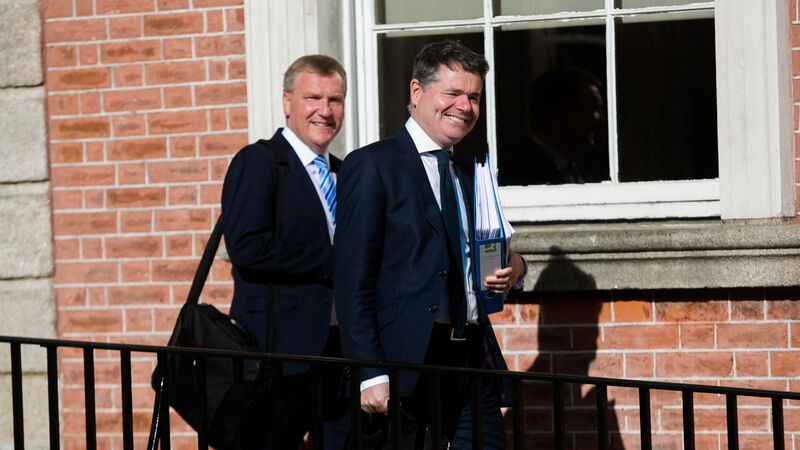Alison O'Connor: A boring budget with nothing to shout about would fit the bill

Ministers Michael McGrath and Paschal Donohoe as they arrive at Dublin Castle for the Cabinet meeting. Picture: Gareth Chaney
Try from €1.50 / week
SUBSCRIBE
Ministers Michael McGrath and Paschal Donohoe as they arrive at Dublin Castle for the Cabinet meeting. Picture: Gareth Chaney
ANYONE else finding it difficult to deny themselves at the moment? It can be a range of things can’t it: a small treat in the supermarket, a new outfit, a weekend away, upgrading of the car, or a house extension.
Needless to say, it’s easy for those who have the money to spend; it’s very difficult to observe the pent-up demand being spent all around you if you don’t. Added to the mix are the supplychain issues and the “gentle reminders” to stock up early for Christmas — just in case.
CONNECT WITH US TODAY
Be the first to know the latest news and updates
Newsletter
Sign up to the best reads of the week from irishexaminer.com selected just for you.

Select your favourite newsletters and get the best of Irish Examiner delivered to your inbox
Sunday, February 8, 2026 - 7:00 PM
Sunday, February 8, 2026 - 9:00 PM
Sunday, February 8, 2026 - 8:00 PM
© Examiner Echo Group Limited